Accessibility Tools
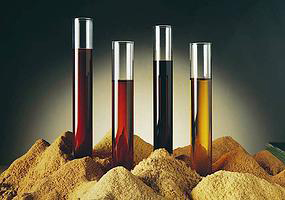
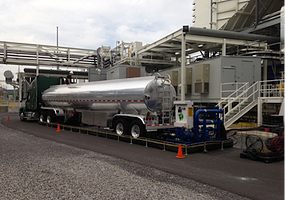
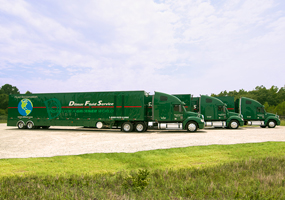
An oil reclamation program is a cost-effective and environmentally friendly way to bring down overall cost-per-gallon of oil purchased by reclaiming leaked or dirty oil to be restored again for use.
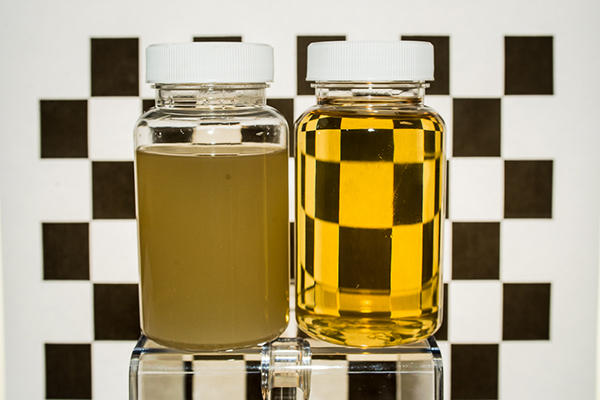
A reclamation program can be implemented for a wide range of products at a customer’s facility. Below is a list of products that can be reclaimed.
Reclamation is possible with both conventional and synthetic versions of the oils listed.
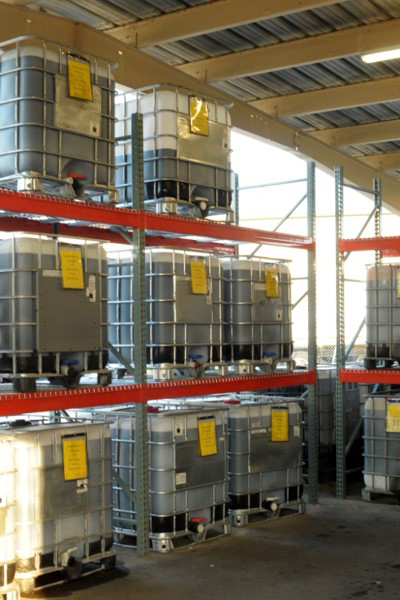

DFS can assist customers in establishing a sampling and analysis program at their facilities that can be as hands-on as required, providing the maintenance personnel with the data required to assist in limiting costly equipment repairs and down time. In partnering with DFS to help maintain this sampling program, we can help customers be proactive instead of reactive, making informed preventative maintenance decisions that will improve operations.
The sampling program will be designed working alongside the customer’s maintenance personnel to ensure we achieve the desired results for the program. This will include assisting in the process from the beginning with surveys to get the equipment logged, training for maintenance personnel, SOPs for sample collection processes, determining the targets and frequency of sampling for all equipment, helping interpret analytical reports, making service recommendations, and being able to provide services when necessary.
Collection Process: DFS will ensure that plant personnel receive proper training and help create SOP’s to ensure that samples are collected correctly each time.
Training: DFS will offer training programs to maintenance personnel to ensure that the oil analysis program is successful. This will focus on how to read an oil analysis reports and what they mean for the equipment.
Web Portal Access: All maintenance personnel that request it will have access to the TestOil web portal that will have a database of all current and historic sample results for all equipment.
Sample Frequency: It is recommended that we sample each piece of equipment on a monthly basis for one quarter to start the program. This will allow us to establish a baseline for all equipment from which to analyze trends in subsequent events. At the end of the first quarter, it is possible to move non-essential equipment to a quarterly sampling program if desired. The program will focus on monitoring changes in sample results, allowing us to make informed decisions about the health of equipment before equipment failure occurs.
Target ISO Cleanliness Codes: This will be determined based on the most critical piece of equipment within a given system.
Reporting: DFS will provide summary reporting of all analytical results, complete with recommendations for service.
Contaminants accumulate on the bottom of reservoirs, even in systems that have efficient filtration, and eventually require cleaning. Reservoir cleaning is often overlooked in the filtration process and can lead to machine failures due to the reintroduction of contaminants. These services are commonly scheduled during outage down times, but it can also be necessary to evacuate a reservoir and perform cleaning following an unexpected maintenance issue such as a pump failure or large-scale introduction of contamination. DFS has the capability to perform turnkey service of these systems. This process can include the following, depending on the customer’s needs:
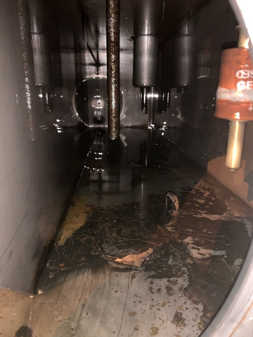
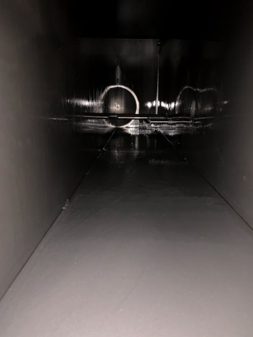
The total lubrication service offering that DFS offers covers not only services, but equipment as well. DFS has access to a wide range of equipment for rental and purchase or lease/purchase.
DFS maintains an extensive fleet of rental equipment available for use at customer facilities that we can have onsite quickly when needed. If requested, the units can be delivered by DFS personnel to perform setup and operation training.
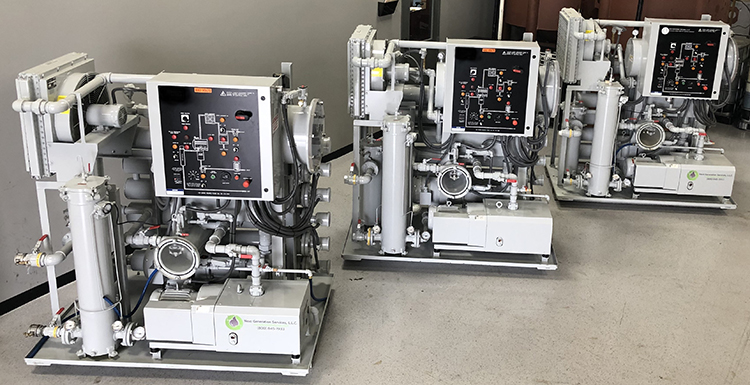
In some situations, a flushing service is necessary to remove extreme particulate contamination in a lube oil system. This is most common during new construction or catastrophic failure (bearing failure, pump failure, etc.). New construction debris and catastrophic failures send contamination throughout the entire lube oil system which, if not properly removed through HVF can cause recurring issues with critical equipment for years to come. Our flushing programs are built around ASTM D 6439 and designed to effectively clean systems and protect critical components.
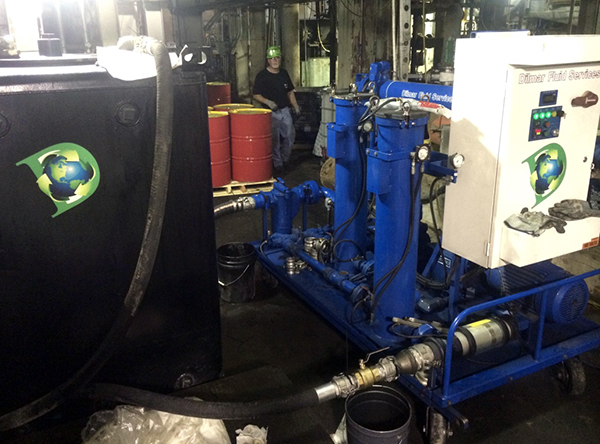
The most important time to perform a flush is after a new unit is built and before it is placed into service. A flush will remove all contaminants from the piping, tubing and hoses that entered the system during construction. This service will keep that contamination out of the bearings and other critical equipment.
Contamination builds up in a lube oil system over time much like plaque in arteries. The most proactive customer will schedule a flush regularly or during a major outage to ensure that their piping is as clean as possible.
During an equipment failure the components will typically shed debris into the lube oil system over a long period of time until the user can take corrective action. This leads to thoroughly hard particulate contamination dispersed throughout the lube oil system piping and reservoir. A flush is critical then to reinstate cleanliness and ensure that this contamination does not find a way into critical components.
When a customer determines that a lubricant change out is necessary, this decision is made based on some aspect of the lubricant properties that have become insufficient. The lube oil piping cleanliness is often overlooked during the decision-making process and new oil is placed into a contaminated system.
It is important to ensure that the fuel in in service equipment is free of particulate and water contamination to maintain the health of the equipment. DFS offers a wide range of fuel related services to our customers to ensure that this goal is achieved.
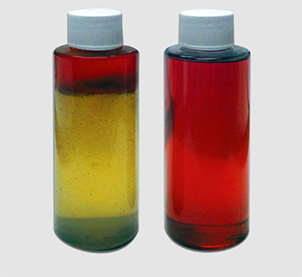
NFPA 110: Standard for Emergency and Stand-by Generators, states that fuel should be tested annually. DFS can design annual sampling programs to ensure the criteria are met and perform service where necessary to ensure equipment is operational when needed.
In most instances when there are fuel issues, the problem can be resolved through fuel polishing. DFS makes use of a Bulk Diesel Cart (BDC) or Mobile Reclamation Unit (MRU) to complete this service, depending on the size of the tank. Fuel polishing consists of running dialysis on the desired to tank remove free and emulsified water as well as contaminants. Fuel filtration can also be performed while transferring or filling tanks. This service can be completed on bulk storage tanks, generator fuel tanks, equipment fuel tanks, etc.
DFS employs a GamaJet tank cleaning system for comprehensive system cleaning with minimal intrusion and waste creation. When necessary, DFS can perform confined space entry tank cleaning of fuel tanks (bulk storage tanks, generator tanks, etc.) to remove built up contaminants..
As part of a fuel polishing service, DFS can also perform biocide treatment where necessary. This service involves introducing a measured amount of biocide additive prior to performing the polishing service to ensure that any microbial growth is eliminated during service.
An exclusive service of Dilmar Oil Company which combines a team of STLE Certified Lubricant Specialists (CLS) and Technical Advisors focusing on all aspects of equipment reliability to help US manufacturers improve production output, reduce equipment downtime, and lower the total cost of operation. This program was designed to help manufacturing professionals overcome today’s challenges to remain competitive in the global economy. We ofer a full suite of services designed to advance your equipment reliability and improve your operation.

• Improved Equipment Reliability
• Reduced Equipment Downtime
• Improved Production Output
• Reduced Maintenance Costs
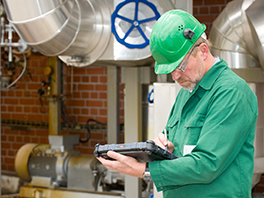
• Lube Surveys • Contamination Control
• Bulk Tank Audits • Lubrication Training
• Gear Inspections • Equipment Failure Analysis
• Oil Analysis Program • Maintenance Programs
• Energy Audits